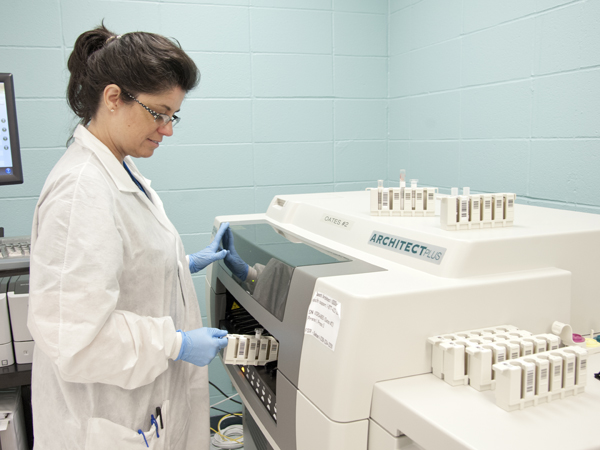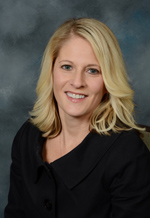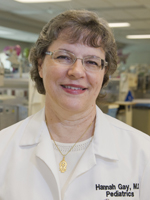New law addresses HIV exposure uncertainty

It's a waiting game that can be excruciating for the families of Mississippi children who have been sexually abused: How soon can they find out if their child's alleged perpetrator is HIV positive?
State law hasn't forced such suspects to be tested for HIV or other sexually transmitted diseases until he or she is convicted, a process that can take years, especially if the abuser isn't immediately known. Come July 1, however, anyone accused of sexually abusing a child must be tested for HIV within 24 hours of arrest.
Gov. Phil Bryant in late March signed into law House Bill 257, which mandates the testing as part of overall legislation requiring DNA testing for those arrested in connection with violent crimes.
For sexually abused patients treated at the University of Mississippi Medical Center's Children's Safe Center, the new requirement will bring swift psychological relief to their families as opposed to months or years of uncertainty over whether their child was exposed to the HIV virus. Test results are ready in about an hour.

"This is an amazing thing for our most vulnerable children in the state of Mississippi," said Children's Safe Center director Rebecca Mansell. "I was a prosecutor for almost 17 years for the state of Mississippi. I understand how important it is, not only for the children, but for their parents.
"The parents already are suffering the trauma of knowing their child has been sexually abused, but they also are faced with wondering if there will be a possible lifelong battle with a disease."
Absent the new law, UMMC associate professor of pediatrics Dr. Hannah Gay years ago established a safety protocol for sexually abused children seen at UMMC's Emergency Department. They're immediately given an initial dose of an antiviral drug combination that significantly reduces the risk of HIV infection, which is transmitted through blood and other body fluids. It's part of a 28-day drug regimen, sometimes with side effects that are traumatic to both child and family, and is recommended by the Centers for Disease Control.
Those children are referred for a visit two weeks later at the Children's Safe Center, a program located at the Jackson Medical Mall that's dedicated to professional investigative, assessment and intervention services for abused and neglected children and their families. The center sees about 1,700 patients annually, most of them victims of sexual crimes, and provides non-traumatic medical examinations and treatment. Safe Center medical director Dr. Scott Benton, UMMC professor of pediatrics specializing in forensic medicine, and his team are trained child abuse professionals with extensive medical, courtroom and investigative experience.
"The uncertainty here is dealt with empirically," Benton said. "We make decisions assuming worst-case scenarios, and that's where the new law provides help. More often, we don't know what the (perpetrator's) HIV status is. The empiric treatment is 28 days of a really toxic medicine.
"If we know there's HIV to protect against, you tolerate the medicine. On top of being sexually assaulted, you have to deal with the effects of a very strong medication that the child doesn't like and the family doesn't like. But if we can quickly test and that test is negative, we can stop that medication."
The new law requires testing via a blood sample that can be acquired at the jail where the person is being housed by any agency with credentials to do such testing. The results are communicated to the child's health-care providers. At UMMC, that will include the Children's Safe Center and in many cases, Gay.
Gay, an infectious medicine specialist who is internationally celebrated for her work in HIV infection in children, was one of the bill's primary champions. Her insistence that alleged perpetrators should be tested for HIV prior to conviction - in fact, as soon as possible after they're arrested - is based on science and research.
"We learned during the 1990s, in newborns who had been exposed to HIV at the time of birth, that antiviral medications started within a few hours of birth could significantly reduce the risk of chronic HIV infection in the baby," Gay said. Researchers then found that a similar rapid treatment for HIV in potentially infected adults, called post-exposure prophylaxis, or PEP, could be just as beneficial, she said.
But for the cocktail to be truly effective, Gay said, treatment must begin very early after HIV exposure and continue for 28 consecutive days. Each hour treatment is delayed can make a dramatic difference in the drugs' effectiveness, she said.

"By 72 hours post-exposure, it is probably not effective at all," Gay said. "So when we see a child who has had recent significant exposure to body fluids that are known to be or are possibly infected with HIV, we encourage beginning antiviral drugs as soon as possible and continuing those medicines for four weeks total."
Although the PEP drug regimen carries low risk of potential side effects that can include liver or kidney damage, Gay said, the benefit of it preventing a lifelong infection is high. The medicine can be very expensive - up to $2,000 for the full regimen. "Ultimately, it has to be paid for, and we don't like to ask the family to pay for it," Benton said.
Some families have difficulty dealing with the stigma of their child being on an HIV medication. "That could be a reason why some parents aren't compliant with giving their children the medication, plus the cost is astronomical," Mansell said. "Dr. Gay and her staff have spent hours and hours and hours on each child, trying to negotiate with either their insurance or Medicaid to cover the cost of the drugs."
The testing is not only good for the child, but good for the perpetrator, Mansell said. "Not only are we helping children in terrible situations, but if someone in the prison is tested and found to be HIV positive, treatment can sometimes keep that person from developing full blown AIDS and keep the prison population healthier."
Mansell admits she wasn't very optimistic the testing measure would gain momentum with the Legislature already under way. "We had to add it onto an already filed DNA bill," she said.
But with major support from state representatives Mark Formby and Andy Gipson and state senators Hob Bryan and Brice Wiggins, Mansell said, the bill received unanimous backing. "Dr. Gay said that before she retired, she wanted this to happen, and with our legislators' help, it did" Mansell said.
"Dr. Gay and her team are invaluable. I absolutely depend on her for choosing the medications, whether it's a liquid or pill, and for drug and HIV counseling," Benton said. Finding a definitive cure "is still a fluid situation. There's no textbook here. They're writing the textbook."
The new law will help the Children's Safe Center make its patients whole again, Mansell said. "Children are often too young to tell you what happened. But, there's always psychological damage, especially with the children who are older," she said.
"We are in the business of prevention. Dr. Gay's legacy is to make sure that these children are as healthy as possible when they leave us, both psychologically and physically. This law helps with the healing process."


